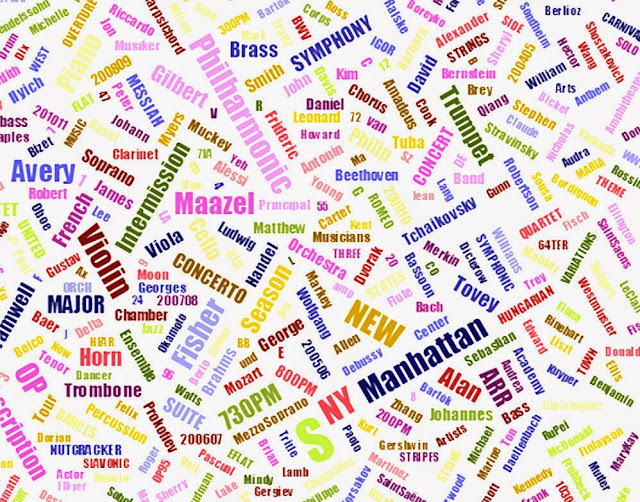Simple Gifts – Christmas Vespers from Dresden

Rudolf Mauersberger has featured on these pages before when I wrote about his immensely moving Dresden Requiem. Mauersberger was Cantor of the Kreuzkirche (Church of the Holy Cross) in Dresden from 1930 until his death in 1971. He was central to the 20th century revival of Bach and Schütz’s music, and is usually remembered today as one of the most important German church musicians of the last century. This categorization is unfair, as not only did Mauersberger write some very under-rated music, but he was also a great humanitarian. His tenure at the Kreuzkirche in Dresden was under two extreme political regimes, first the Third Reich, and then the communist German Democratic Republic. Through these two despotic, and anti-religious regimes Mauersberger kept alive a Protestant church tradition that stretched back to Martin Luther.
The anniversaries of the dreadful destruction of Dresden on 13th February are still marked by performances of his
 Dresden Requiem, and under the GDR these were followed by candle lit processions from the Kreuzkirche, which became silent protests against tyranny and dictatorship. Mauersberger’s contribution in these dark years was marked by an appreciation from Roman Herzog, President of the re-unified Federal Republic of Germany, in the sleeve notes for the 1994 Carus recording of the Dresden Requiem (above).
Dresden Requiem, and under the GDR these were followed by candle lit processions from the Kreuzkirche, which became silent protests against tyranny and dictatorship. Mauersberger’s contribution in these dark years was marked by an appreciation from Roman Herzog, President of the re-unified Federal Republic of Germany, in the sleeve notes for the 1994 Carus recording of the Dresden Requiem (above).The Saxony region of Germany has a strong tradition of Christmas music, and two of the masterpieces of the genre, Johann Sebastian Bach’s Christmas Oratorio and Heinrich Schutz’s Christmas Story were written in the Saxon towns of Dresden and Leipzig. During his time at the Kreuzchirche in Dresden Rudolf Mauersberger developed and embellished the traditional Christmas Eve sequence of carols and choruses to create a self-contained work tailor made for the fabulous boys voices of the Dresden Kreuzchor (seen in my header photo). The Christvesper is identified in Mauersberger’s catalogue as RMWV 7. The Protestant chorale stands at the core of the work, and the musical style is seasonably rich, with Brucknerian brass sonorities reflecting the Saxon trombone tradition.
Every Christmas Eve there are two performances of the Christmas Vespers in the
 Kreuzkirche in Dresden. Under the GDR regime these performances also became communal symbols of solidarity and hope. Mauersberger’s successors as Cantor at the Kreuzchirche continued the traditional performances, and one of these, Gothart Stier, made an excellent recording of the Vespers in 1993 with the Kreuzchor and Dresdner Philharmonie. It is on Berlin Classics 13462BC (left), available via Amazon Germany.
Kreuzkirche in Dresden. Under the GDR regime these performances also became communal symbols of solidarity and hope. Mauersberger’s successors as Cantor at the Kreuzchirche continued the traditional performances, and one of these, Gothart Stier, made an excellent recording of the Vespers in 1993 with the Kreuzchor and Dresdner Philharmonie. It is on Berlin Classics 13462BC (left), available via Amazon Germany. The fine recording was made in the Lucaskirche in Dresden. This studio is a converted church and has been the venue for many famous sessions. As a testimony to the power of music to reconcile, two of my all time favourite recordings were made there. In 1970 Herbert von Karajan travelled to the shattered city of Dresden to record his classic account for EMI of Richard Wagner’s misappropriated hymn to reconciliation, Die Meistersinger von Nurnberg. Twenty-four years later Matthias Jung recorded Rudolf Mauersberger’s Dresden Requiem with the boys voices of the Kreuzchor in the Lucaskirche. The words used by Roman Herzog to describe this work can also be applied to the composer's Christmas Vespers - "a sign of hope of a more peaceful world”.
For more on Dresden take An Overgrown Path to I am a camera - Dresden
Any copyrighted material on these pages is included for "fair use", for the purpose of study, review or critical analysis only, and will be removed at the request of copyright owner(s). Report broken links, missing images and other errors to - overgrownpath at hotmail dot co dot uk










Comments